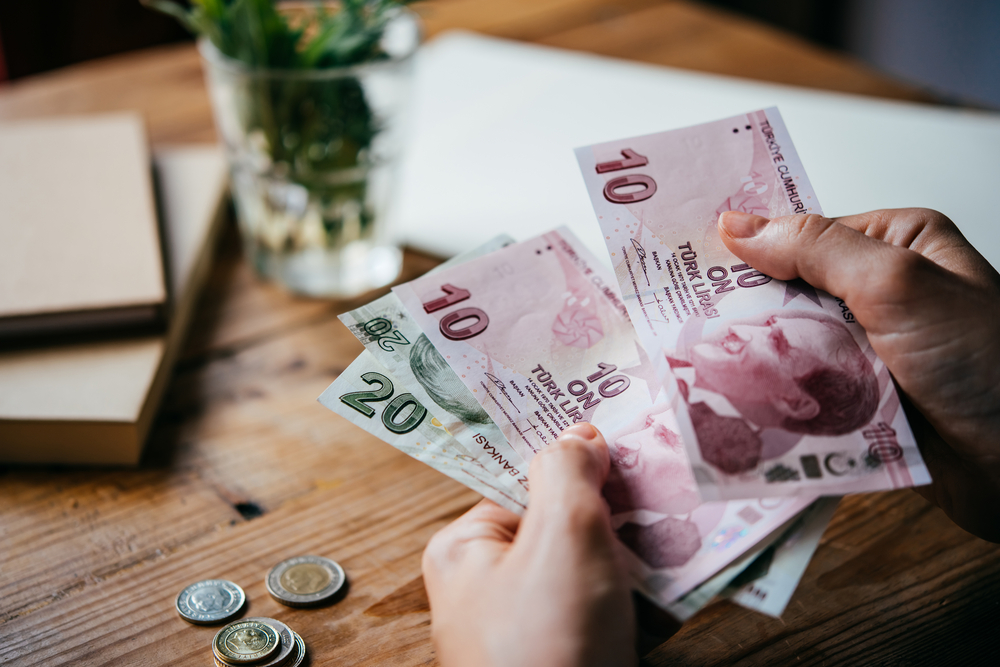ALBAWABA – Turkey’s struggle to counter its economical decline is getting more difficult after the recent inflation figures were released by the Turkish Central Bank, which showed a 6.7 percent monthly hike since December, highest recorded since August last year, with year-on-year inflation reaching close to 65 percent.
Prices for the health sector saw the highest increase this month at 17.7 percent, followed by hotels, restaurants and cafes at 12 percent, other goods and services saw a 10 percent increase, with daily needs like transportation, food, beverages and tobacco rising in the average of 5 to 7 percent and housing seeing a similar increase at 7.4 percent, while clothing and footwear, on the other hand, was the only sector to see a remedy at 1.61 percent decrease.

Hands holding Turkish Lira bills (Shutterstock)
Turkey’s Consumer Price Index saw a minor increase at 64.86 percent, compared to the 64.77 percent from December last year, with economists attributing these price hikes to the recent increase in minimum wage, announced earlier by Vedat Isikhan, Minister of Labour, which was upped to 17,002 Turkish Liras (TRY), about 556 US Dollars at today’s 1 TRY = 0.033 USD rate, a 100 percent increase compared to last year’s January.
After a currency crisis Turkey witnessed at the end of 2021 causing inflation to sky-rocket, the country has been trying to mitigate damages with major strategy shifts announced after President Erdogan won the recent elections, which included appointing Hafize Gaye Erkan as Central Bank governor, who announced her resignation last Saturday, citing what she calls a “reputation assassination” as a cause, to be replaced by Fatih Karahan right away.









